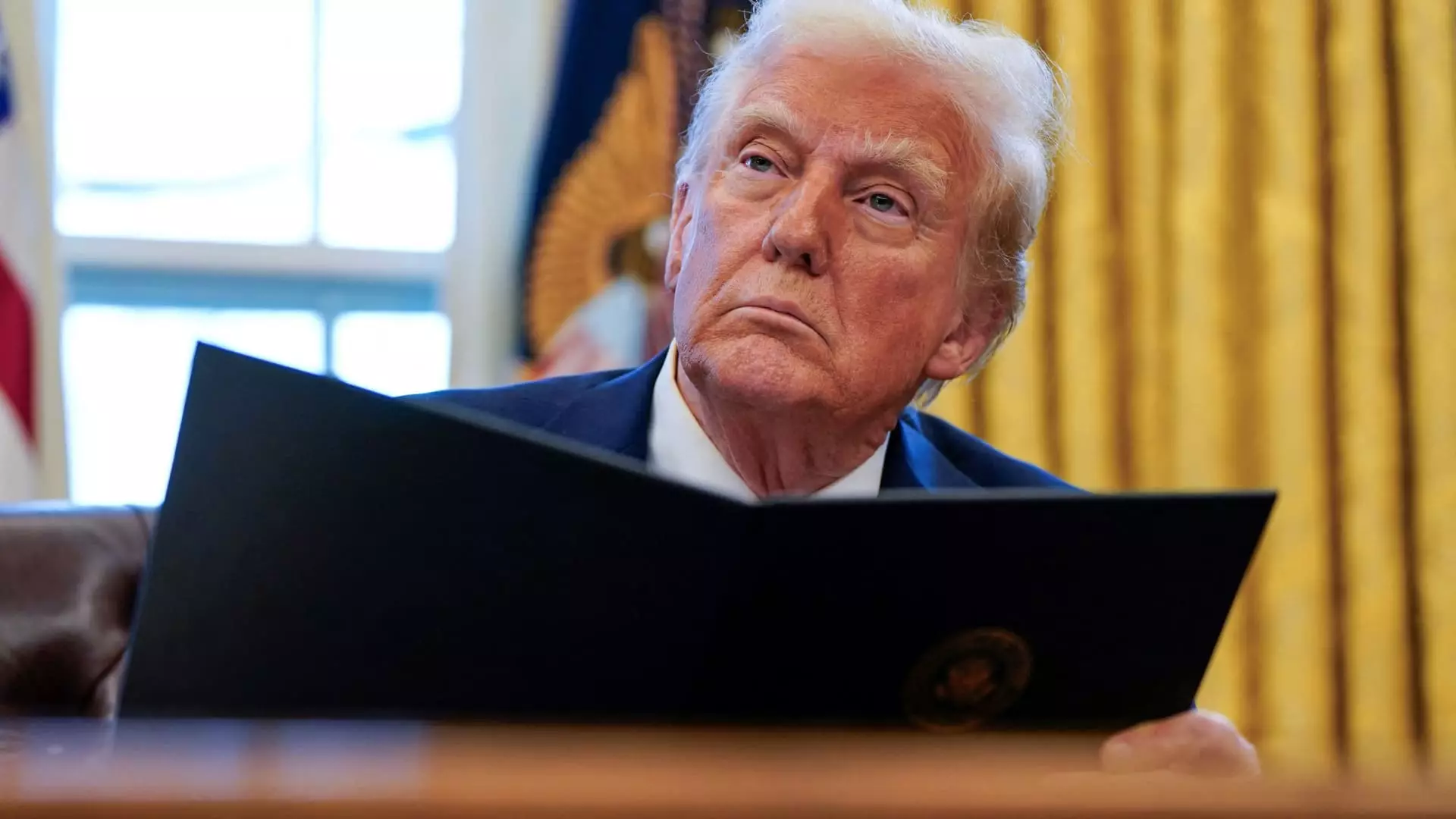In a move that has been both anticipated and feared, the Trump administration recently confirmed that President Donald Trump will be imposing significant tariffs on key trading partners, specifically 25% tariffs on Mexico and Canada, alongside a 10% duty on China. This decision, announced by White House Press Secretary Karoline Leavitt, comes in response to allegations of illegal fentanyl trafficking linked to these countries. The announcement sets into motion a series of economic repercussions that might reverberate through both domestic and global markets.
The initial response from the financial markets was predictably negative. Major indices such as the Dow Jones Industrial Average plummeted by over 300 points, reflecting investor anxiety about the implications of these tariffs. This decline occurred despite earlier market gains, underscoring the volatility associated with sudden shifts in trade policy. The S&P 500 and Nasdaq Composite also followed suit, indicating a broad concern among investors regarding the stability of business operations in a potentially retaliatory global trade environment.
According to Leavitt, the tariffs represent “promises made and promises kept” by President Trump. This statement underscores the administration’s intentional use of tariffs not merely as economic tools but as instruments of foreign policy. The idea is to leverage economic pressure to compel changes in policies related to immigration and drug trade. Such a strategy raises critical questions about the efficacy and morality of using tariffs as a bargaining chip rather than engaging in diplomatic dialogue.
Economic advisers to the president, such as Peter Navarro, have compared the situation to the upcoming Super Bowl, indicating the scale of fentanyl deaths in the U.S. could fill the Superdome in New Orleans annually. This dramatic metaphor enhances the administration’s narrative that aggressive tariffs are necessary to combat a national crisis. However, it also simplifies a complex issue and raises concerns over whether such measures effectively address the root causes of drug trafficking and immigration issues.
The imposition of these tariffs is set against a backdrop of an economy that has shown signs of resilience but remains sensitive to inflationary pressures. Recent data from the Commerce Department indicated a rise in inflation to 2.6%, prompting concerns that the new tariffs may exacerbate this trend. Economists warn that higher tariffs could translate to increased consumer prices, particularly if U.S. manufacturers rely heavily on imported goods.
Federal Reserve officials have signaled their intention to monitor the situation closely. Fed Governor Michelle Bowman pointed out that understanding how these new tariffs will be implemented is essential for predicting their potential impact on the economy. The complexity of this situation is buttressed by input from Chicago Fed President Austan Goolsbee, who emphasized the importance of determining whether these tariffs are isolated incidents or part of a broader pattern of retaliatory actions between the U.S. and its trading partners.
As the economic landscape shifts under the weight of these tariffs, the question remains: Will this aggressive stance yield the desired results, or will it provoke a trade war that could have far-reaching consequences for the global economy? With a trading relationship worth approximately $1.6 trillion among the involved nations, the stakes are undeniably high.
The unfolding narrative indicates that both domestic manufacturers and consumers may bear the brunt of these policies. The potential for retaliatory tariffs from Mexico, Canada, and China looms large, meaning that U.S. businesses that rely on these markets might find themselves squeezed from both sides. Ultimately, the administration’s strategy will need careful navigation to avoid pitfalls that could lead to economic instability both at home and abroad.
As the world watches and waits for the specifics on how these tariffs will be implemented, the implications are clear: While aiming to solve pressing challenges such as drug trafficking, these measures could trigger a cascade of unforeseen consequences that might undermine the very economy they seek to protect.


Leave a Reply